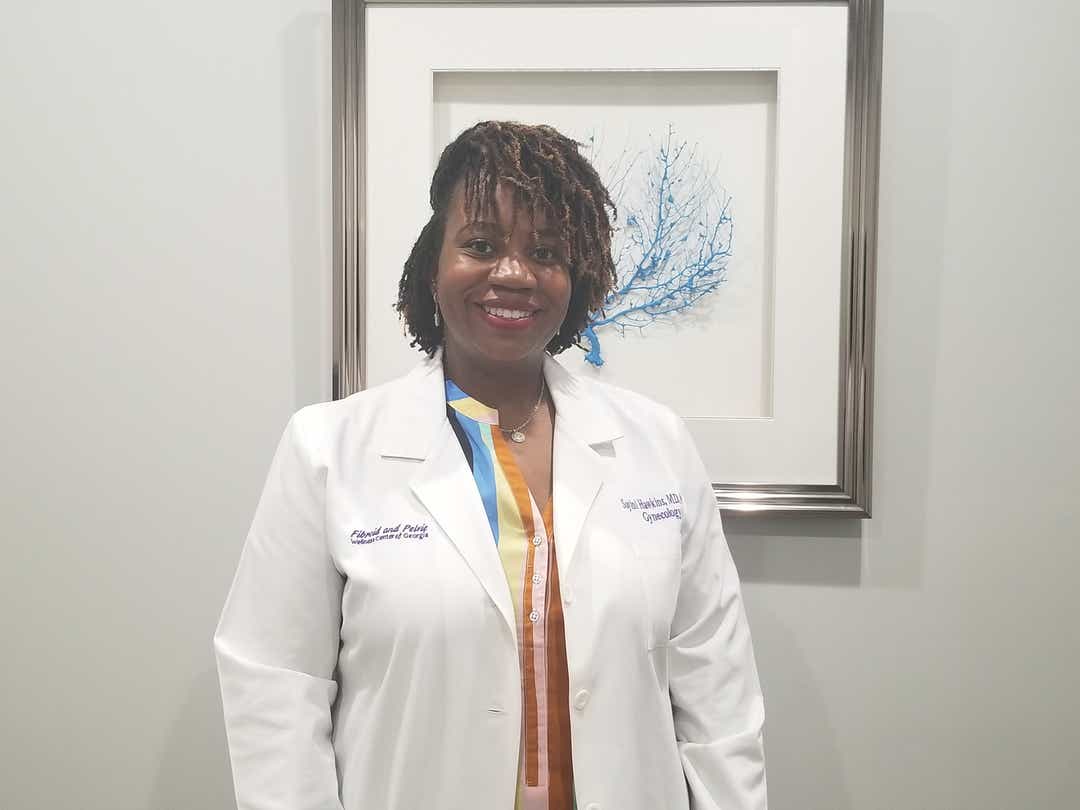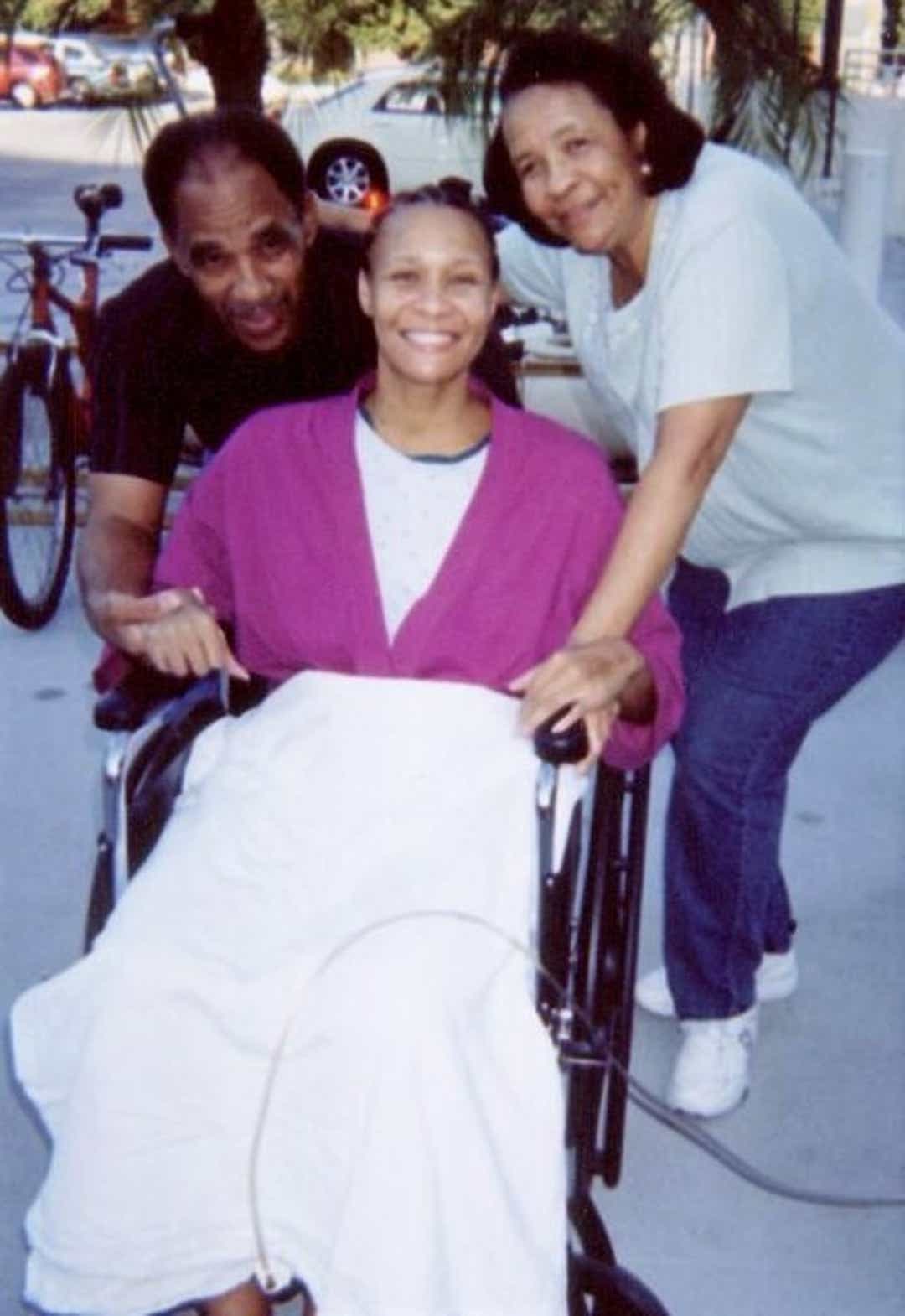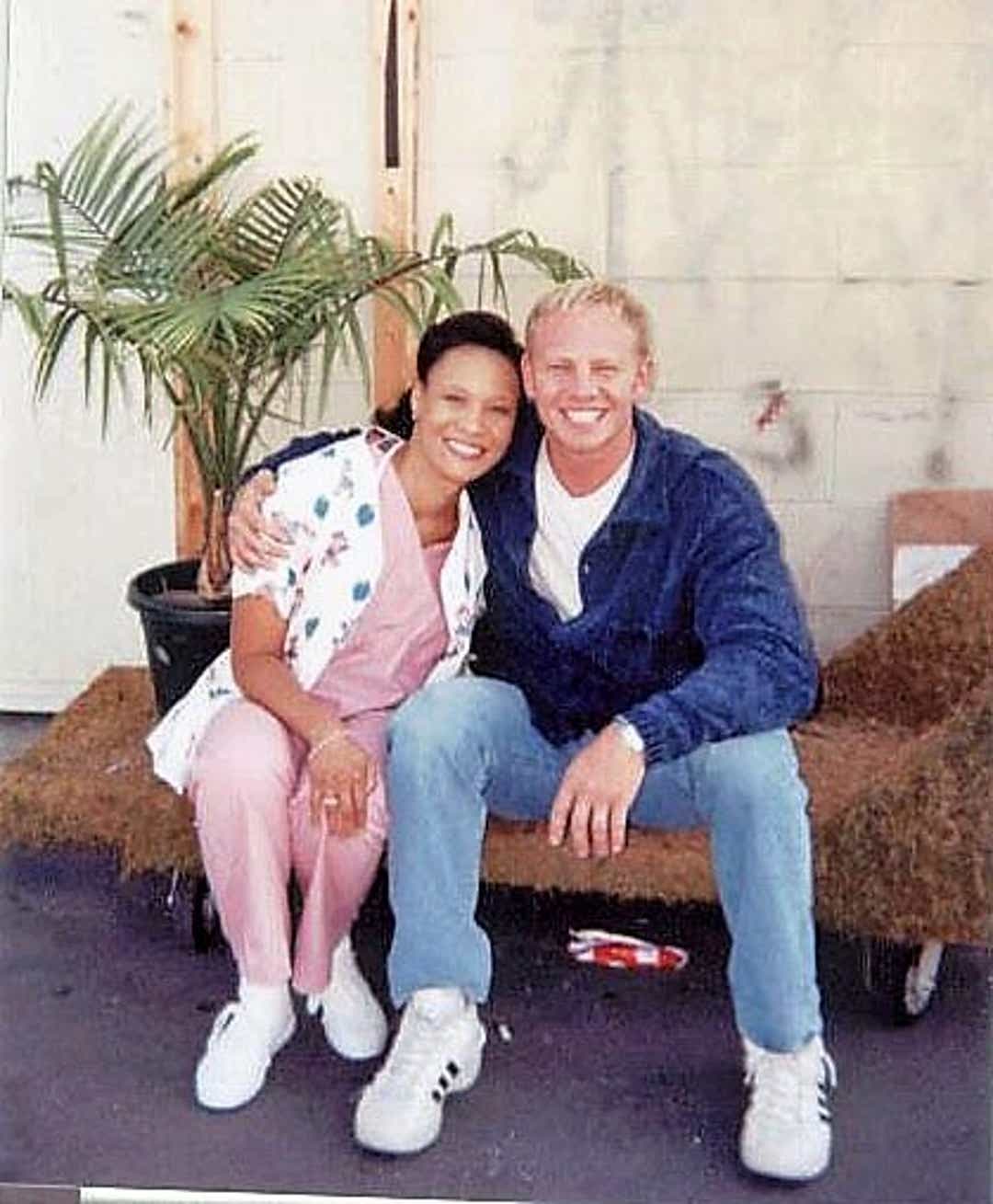Actress Alicia Cole developed flesh-eating disease, sepsis and three life-threatening antibiotic-resistant infections after what was supposed to be a minor surgery in 2006. But for all she went through, Cole recalls details of the racial bias she encountered at the hospital as clearly as the physical ones she suffered.
The experiences of Cole and her family over more than a decade of hospital stays turned her into a vocal patient safety advocate – and one of the very few people of color in the growing movement.
Whether it's unconscious, explicit, institutional or research bias, discrimination in the health care system contributes to the stark disparities seen in how COVID-19 sickens and kills patients of color, health care experts agree.
Insurance coverage and access to care, housing, healthy food and transportation all play a role in how diseases affect races differently. When a bias is built-in, Cole said, "People stay away and try to take care of it at home or with a nurse or a doctor at the church."
"They want to talk to someone who genuinely cares and is not judging them at the same time," she said. "That’s really important, and not just for Blacks."
Ask Black doctors or patients if there's racial bias in the health care system and many laugh at the seeming absurdity of the question. Some of what they point to is anecdotal, but it comes up time and time again. Evidence can be found in the lack of research and innovation in illnesses that mostly affect people of color and in scientific studies that illustrate inequities in health care.
A study last October in the journal Science claimed an algorithm used by hospitals miscalculated the care needs of sicker Black patients. A 2018 study in Health Affairs found African Americans were more likely to be involved in studies exempted from requiring “informed consent” to fully describe the potential risks of the research to participants.
Dr. Howard Koh, a professor at Harvard T. H. Chan School of Public Health and former Department of Health and Human Services Assistant Secretary, calls COVID-19 a "fast pandemic being fueled by a slower pandemic" of disparities in chronic conditions.
“Studies have shown even the most well-intentioned physician or medical professional demonstrate unconscious bias in caring for others,” said Koh. “That’s why explicit and consistent training and education and commitment to cultural competence is absolutely critical for the future of our health care workforce.”
Hospitals including Cedars-Sinai in Los Angeles, Massachusetts General Hospital in Boston and Highland Hospital in Oakland, California, are among those focusing on how to rid their systems of both explicit and implicit bias contributing to uneven care based on race.
Margarita Alegria, a psychologist and Harvard Medical School professor, heads the disparities research unit at Massachusetts General. She says the way health care is administered perpetuates bias with its push to maximize profit by seeing more patients.
"There's not enough time not to stereotype patients," said Alegria.
This leads to "attributional errors" caused when doctors don't have enough time to get the information they need "to put themselves in the position of the patient," she said.
"You attribute people’s characteristics and behavior based on their group," she said.
Health care providers doing this might assume a patient doesn't care about their health, when in fact long work hours and long commutes on public transportation make it difficult to do an appointment. If these patients then feel dismissed and stereotyped, they are less likely to go back until they are very ill, said Alegria.
"They are not really getting out of health care as much as they need to," she added. "The investment in time when you are low income is very different."
Fibroids become focus for change
Treatment of uterine fibroids, a common condition that's worse for Black women, is an area where racial bias is especially clear.
About 70% of women will have uterine fibroids – benign tissue masses in or around the uterus – in their lifetimes. Most won't have to do anything and some may not even realize they have them.
Black women, however, are far more likely than white women to get both uterine fibroids and to be encouraged to have risky surgeries to remove them. Removing the uterus in a hysterectomy is often recommended, sometimes even for women of childbearing age.
If that sounds like echoes of the forced sterilization of many Black women up until 1972, it feels that way to women faced only with the hysterectomy option.
Dr. Joy Scott, an Oakland, California, obstetrician and gynecologist at Highland Hospital, has many Black patients with fibroids and describes herself as a "fibroid survivor." Black women, she said, are "notoriously on record as having them the worst, with the most symptoms, in larger numbers and the worst types."
Scott went through her medical school residency looking like she was six months pregnant before she could finally have her fibroids removed and surgery was the only option. To improve access to doctors who understand them, Scott co-founded Culture Care to help women of color get second opinions from physicians through telemedicine in California. She hopes to expand nationally.
Bias is part of the reason Black women's fibroids are often so serious by the time they see a doctor, some physicians say.
By the time women get to the Atlanta-area office of Dr. Soyini Hawkins, their "options aren't really options anymore." She asks them when they decided to do something about their fibroids and "that’s when I get the stories." Their experiences at physicians' offices are so "disheartening, they don't do anything and don't seek a second opinion."
"Patients tell me they do feel dismissed," said Hawkins. "It builds a distrust where they won’t go to anyone."

Hawkins' own experience with fibroids – missed by her Black male doctor until it was too late for noninvasive surgery – prompted her to specialize in such procedures, including one known as Acessa. Hawkins and patient Theresa Heyward, then 44, thought the noninvasive approach was the perfect solution for her, but after approving it, her insurer rejected it the day of her surgery.
"I was ready to fight to be able to maintain my uterus and prevent something so life-altering," Heyward said. "But I needed to continue to exist, too."
Her fibroids had gotten so bad if she didn't drink enough orange juice or take enough iron pills, she was warned she might pass out while behind the wheel of her car from all the blood loss.
"If it affected white women that way, there would be multiple ways to prevent or cure fibroids," said Scott. "There's just not the same interest in doing research."
Sickle cell treatments long ignored
Dr. Ted Love knows all about how diseases get ignored when Blacks are the principal victims. Sickle cell disease was discovered more than 100 years ago and the cause has been understood for about 5 years, but investment and innovation have been far behind other so-called orphan drugs.
Venture capitalists tapped Love to be CEO of Global Blood Therapeutics, which developed one of two new treatments in 20 years for sickle cell disease because he would be so passionate.
"It’s going to be personal for Ted," Love recalls them saying.
On Thursday, Love spoke at the virtual annual conference of the pharmaceutical trade group Bio on the importance of diversity in clinical trials and COVID-19's disproportionate impact on underrepresented populations. He sees parallels in the growing support for changes in policing policies and the growing interest in health care disparities.
"The truth is many people who benefit from the current system have really not wanted to give it up," Love said in an interview. "The thing that gives me hope is that there is a broad cross section of our society saying it’s wrong. Even people in groups benefiting from it are saying this has got to come to end."
Hertz Nazaire, 46, was diagnosed with sickle cell disease when he was six months old. Until he started on GBT's new drug Oxybryta in December, Nazaire and other sickle cell patients' only options for treatment were pain medication or stem cell transplants. The transplants are risky and require a healthy donor who has the same tissue type as the patient.
That repeatedly left Nazaire face to face with the health care providers who thought he was exhibiting "drug-seeking behavior" and not in true pain.
"People have a stigma and judge you before they even know you," said Nazaire, who lives in Bridgeport, Connecticut. "They might take the last person with the same skin color and you are the same person. They don’t treat you like an individual."
'Fear, skepticism and distrust'
Alicia Cole, who played a nurse in the 1990s TV series "Beverly Hills, 90210," watched that happen to her brother in 2016 when he went to pick up her morphine prescription after a sinus infection sent her back into the hospital. She had developed flesh-eating disease and sepsis again.
Cole said the pharmacy clearly assumed he was looking for drugs because he was Black. The pharmacy refused to let him pick up liquid morphine for her, claiming it wasn't a "legitimate prescription," until the hospital called.

"Even among the patient advocate communities, racism has always been too uncomfortable a discussion to have," said Cole. "Our larger society is just now confronting racism. Doctors do not magically check bias at the hospital door."
Cole's first experience with health care bias was in that same hospital in 2006 when she was having two small fibroids removed. For every day of what turned out to be a two-month stay due to hospital-acquired infections, her parents were by her bedside. That prompted one nurse to ask what her parents did for a living and how they could afford to be there so often. A white patient wouldn't have been asked that, Cole said.
When her father stepped into the hall while her wound dressings were changed, almost without fail, someone would mistake the retired Ford Motor autoworker and Marine for a low-level hospital worker, she said. They'd try to hand him dirty laundry or trash.
There were no apologies. A nurse manager explained simply: "We don't get many African American patients here."

Like the diseases that disproportionately affect people of color, the amount and nature of discrimination in health care don't get the focus it deserves. Harvard's Alegria said no one knows how much disparities can be traced to discrimination because no one has studied why there are so many fewer Black and Latino patients in the health care system.
"There's not taken enough attention paid to looking at how racism is perpetuated," said Alegria. "There has to be some inward reflection, radical action and a willingness to eliminate this systemic racism."
Even conditions that have received significant public attention might have different results based on race. Breast cancer is the most commonly diagnosed cancer in women, but researchers found Black women are much more likely to get a late-stage diagnosis that makes the disease far more difficult to treat. A 2017 study of 26,331 women with breast cancer in Missouri found Black women had 30% greater odds of being diagnosed with late-stage breast cancer compared to white women.
Marya Mtshali, a Harvard lecturer in women, gender and sexuality studies, said health disparities for Black Americans begin before they enter a hospital or doctor’s office. Black and Latin people are more likely to be uninsured, which makes some wary of seeking care over worries about expensive medical bills or being treated differently.
Predominately Black communities are more likely to have fewer health clinics or hospitals that lack key medical services such as maternity wards. And Black moms are two to three times more likely to die from pregnancy-related causes than white women, according to the Centers for Disease Control and Prevention.
“The experience is being clouded by different layers of racism, in some cases sexism, that can make it a very different experience for a person of color going into the health care system,” Mtshali said.
Researchers reported a U.S. health system commercial algorithm "exhibits significant racial bias" because it calculates health costs rather than health needs. The program misidentified Black patients with chronic health problems as being at similar risk as healthier white patients. In fact, Blacks had fewer means, not less need.
The company that created Optum Impact Pro algorithm disputed the study's findings. In a statement, Optum said the algorithm is not racially biased and the study mischaracterized it based on one hospital system's incorrect use.
Mtshali said some examples of medical bias can be exacerbated by gender, too. She cited anecdotal reports of Black women with illnesses such as flu or severe stomach pain taking extra time to “dress a certain way” to be treated with respect. The underlying fear is they will not be treated equally when they seek care at a hospital or doctor’s office.
“When somebody is doubled over in pain, they shouldn’t have to worry about trying to look presentable,” she said. “There already is this fear, skepticism and distrust entering an institution that you are not going to be treated the same.”
Koh said efforts to address medical bias are inconsistent. Hospital, clinic and health care system leaders must adopt standards to ensure facilities are hospitable for people of all backgrounds. Under the Obama administration, the U.S. Department of Health and Human Services adopted policies to address so-called class standards for cultural and linguistic accessibility, Koh said
It’s an issue that will become increasingly important as diverse populations grow and the United States heads toward a majority-minority nation.
“Hospitals are still inhospitable to people of color whether they realize it or not,” Koh said. “We have documented the problem in a very detailed way. The question now is what do we do about it?”
O'Donnell can be reached on social media at @JayneODonnell or email at jodonnell@usatoday.com. Alltucker is on Twitter as @kalltucker and email at alltuck@usatoday.com.
"care" - Google News
June 14, 2020 at 07:02PM
https://ift.tt/37rUDSF
Medical bias: From pain pills to COVID-19, racial discrimination in health care festers - USA TODAY
"care" - Google News
https://ift.tt/2N6arSB
Shoes Man Tutorial
Pos News Update
Meme Update
Korean Entertainment News
Japan News Update
Bagikan Berita Ini














0 Response to "Medical bias: From pain pills to COVID-19, racial discrimination in health care festers - USA TODAY"
Post a Comment